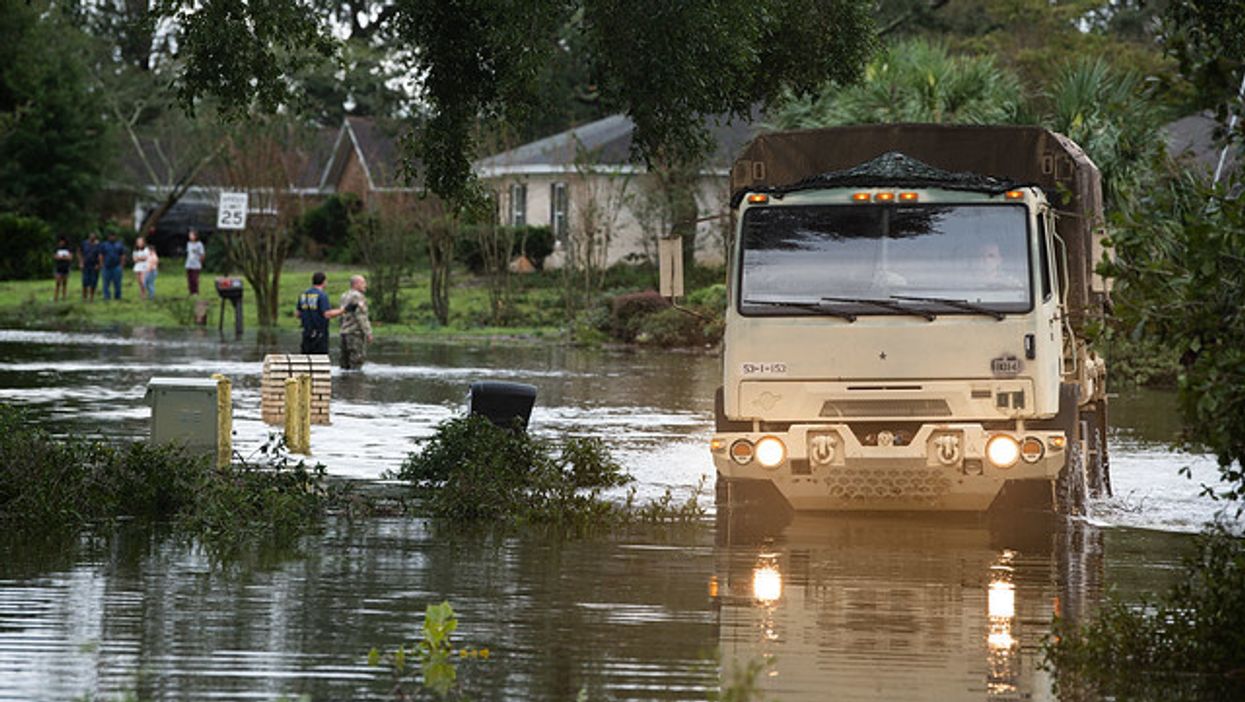How did you spend your holiday? If you’re like me, one guilty pleasure was devouring TV marathons, designed to offer relief from the stresses of the season. Reliable favorites include back-to-back episodes of The Twilight Zone and, on Turner Classic Movies, one whole day devoted to science fiction, imaginings both cautionary and consoling of what the future holds for our world.
But usual escapes didn’t quite work this year, not when fact is scarier than anything Twilight Zone creator Rod Serling might have dreamed up, though the serious Serling who introduced each episode of his iconic series, all furrowed brow and cigarette in hand, did signal he suspected what was coming if mankind didn’t shape up.
Hint: Mankind did not listen to that sober sage.
Let’s list just some of the gloom and doom greeting the world at the start of a new decade.
The end of the year brought surprising news from the Trump administration’s own experts — you know, those folks hired to replace scientists from the previous administration, presumably to more closely reflect the views of the boss and because of their ties to industry.
They showed some independence, with members of the EPA’s Scientific Advisory Board posting draft letters laying out the disconnect between policies they are tasked with adjusting and real science. The statements criticized the administration’s proposed overhaul of Obama-era regulation of waterways, efforts to curb vehicle tailpipe emissions to fight climate change and plans to limit scientific data when drawing up health regulations.
That news coincidentally paired with the umpteenth showing of the 1973 movie Soylent Green, featuring one of Charlton Heston’s less wooden performances and a future world devastated by pollution, global warming, too many people and too few resources, where the privileged use their riches to escape harm and where — spoiler alert – “Soylent Green is people!”
The start of January brought a preview, reported in The New York Times, of proposed changes to the 50-year-old National Environmental Policy Act that would mean “federal agencies would no longer have to take climate change into account when they assess the environmental impacts of highways, pipelines and other major infrastructure projects.”
Those supportive of the move contend economic and employment opportunities must be considered, while environmentalists worry about the future of air, water and wildlife. The public and courts will get the chance to weigh in on the changes to the law, expected to be formally announced this week.
Caring about air, water and wildlife is inescapable when every day brings new pictures of a continent and country burning. Man has certainly helped pull the trigger in Australia, with dozens of arrests of those charged with intentionally setting fires. But scientists and researchers have said that climate change has worsened the effects of the wildfires, which have killed many, destroyed thousands of homes and devastated flora and fauna.Climate change activists take to the streets to demand action.
“Climate change is increasing bushfire risk in Australia by lengthening the fire season, decreasing precipitation and increasing temperature,” according to the Australian Bureau of Meteorology.
Australia’s leaders, including its prime minister, remain largely unmoved, insisting that despite drought and bushfires, the country does not need to cut carbon emissions. Energy and Emissions Reduction Minister Angus Taylor told Reuters, “When it comes to reducing global emissions, Australia must and is doing its bit, but bushfires are a time when communities must unite, not divide.”
To be fair, Serling’s brainchild series remains iconic, in part, because it was prescient in its view of the dark side of humanity, of the greed and xenophobia that trump good sense and charity when the going gets a little bit tough. He shone a light on contentious family dynamics and neighbors turning against neighbors, proving only too well his fictional alien force’s informed hunch that when it comes to defeating the human race, no outside aggression is necessary. We will do it to ourselves every time.
His science was never truly fiction.
Still, what once seemed ironic and clever comes as a shock as the fantastical scenarios increasingly play out in real time. The writing is smart, the concepts clever — and all of it is frightening.
In the 1960 film The Time Machine — not exactly H.G. Wells’ 1895 vision, but entertaining nonetheless — Rod Taylor’s character returns to his Victorian present, chastened and woeful after his “machine” offers a glimpse into the future, full of passive citizens cut off from the knowledge of the past and content to be happy and entertained, and ultimately unable to confront danger.
When I watched this time around, I sympathized with those trapped underground, perhaps more in line with Wells’ sentiment about the plight of the working class during industrialization, though they serve as the movie’s villains. That allows for a last act that contains hope for a new day.
Unfortunately, it’s hard to imagine any sort of happy ending when the future is now.Thunberg: ‘Don’t listen to me, listen to the scientists.
Mary C. Curtis has worked at The New York Times, The Baltimore Sun, The Charlotte Observer, as national correspondent for Politics Daily, and is a senior facilitator with The OpEd Project. Follow her on Twitter @mcurtisnc3.


 Sean Spicer Bushes GIF
Sean Spicer Bushes GIF

